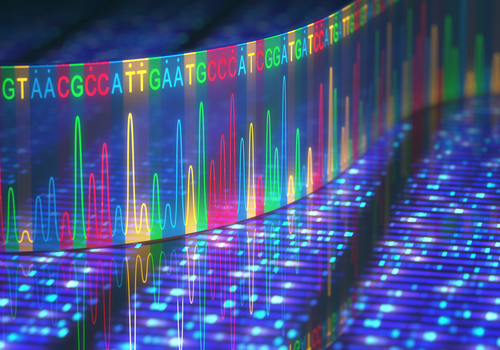New aHUS-Causing Mutations Found in DGKE Gene in Chinese Patient, Report Says
Written by |

Shutterstock
Scientists have discovered, in a Chinese patient, new mutations in the DGKE gene that can cause atypical hemolytic uremic syndrome (aHUS), a case report shows.
These new mutations expand current knowledge of this gene in the context of aHUS, and highlight potential racial differences in DGKE genetic variants, the researchers said.
The study, “A novel compound heterozygous mutation in DGKE in a Chinese patient causes atypical hemolytic uremic syndrome,” was published in the journal Hematology.
aHUS is most commonly associated with mutations in genes associated with the complement system — a group of blood proteins that play a key role in immune responses.
Mutations in the DGKE gene, which encodes a protein of the same name, were recently shown to cause aHUS. However, this gene is not involved in the complement system and the “mechanisms by which mutations in DGKE result in aHUS are complex and unclear,” the researchers said.
Until now, aHUS-causing mutations in DGKE have been reported in patients of European and Japanese ancestry. This study is the first report of such mutations in an individual of Chinese origin.
The researchers behind the report performed genetic sequencing on blood samples taken from one member of each of five Chinese families who showed signs of aHUS.
One of these families included a child who had been diagnosed with aHUS during infancy, as well as the child’s parents and older sibling — all three of whom were unaffected by the disease. Clinically, the child showed some signs of aHUS, including low hemoglobin and platelet counts. However, the levels of C3 and C4, two members of the complement system, were within a normal range.
Gene sequencing revealed that the child had mutations — c.231C>G and c.790_791delTG — in both copies of DGKE, one inherited from each parent. The presence of two different mutations in each gene copy meant the child was a compound heterozygote.
Neither of these mutations had been previously reported, which may be, at least in part, because previous studies of DGKE in aHUS have not included anyone of Chinese descent. Though, given the rarity of the condition, this is largely speculative at present.
The investigators then carried out computer analyses to assess the impact these two mutations could have on the DGKE protein.
They found that c.231C>G led to the replacement of the amino acid cysteine by tryptophan within one of the protein’s domains. This alteration was expected to change the way amino acids — the building blocks of proteins — interact with surrounding water molecules, subsequently affecting protein folding and reducing its stability.
The c.790_791delTG mutation was predicted to produce a truncated, or shortened version of the protein, likely impairing its function.
“All these data demonstrated that the two DGKE variants may influence its conformation [three-dimensional shape], resulting in its loss of function,” the researchers said.
The team concluded that their study “further expands the spectrum of the sequence variants reported in the DGKE gene and also indicates that different races may have different DGKE variants.”





